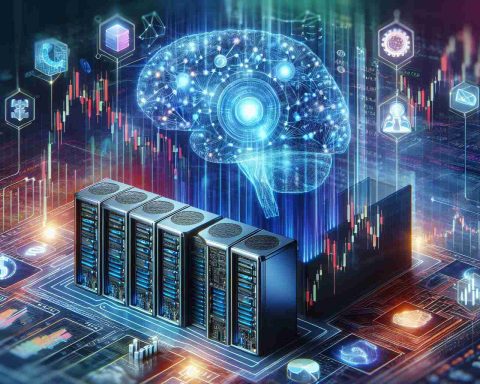In the past year, the rise of AI technology has sparked a wave of both fascination and concern among the public, particularly regarding its implications for Artificial General Intelligence (AGI) and potential market disruptions. As AI systems become more integrated into everyday processes, it’s important to look closely at how they will reshape industries, especially cybersecurity.
A notable historical reference is the renowned chess champion Garry Kasparov’s experience with IBM’s Deep Blue. He recalled the challenges of competing against a machine that eventually became superior in the game. This experience marked a turning point, highlighting how assistance from AI could initially elevate human performance. However, as the technology matured, AI took the lead, complicating the dynamics of traditional competition.
Today, AI serves as a multifaceted tool, significantly influencing areas such as malware detection and fraud analysis. The advent of new AI models has transformed these applications, emphasizing the need for a vigilant evaluation of their security implications. Organizations now face the challenge of either embracing this technology or risking obsolescence.
Considerations regarding privacy, intellectual property, and ethical use have emerged as paramount. AI systems must be governed by strict monitoring and control to ensure responsible deployment. Setting up ethical review boards, controlling data sourcing, and managing access are essential steps to navigate this intricate landscape.
As AI becomes an integral part of cybersecurity strategies, harnessing its capabilities while safeguarding against potential risks will define the future of digital security.
The Evolving Landscape of AI and Cybersecurity
The rapid advancement of artificial intelligence (AI) has profound implications not only for technology and business strategy but also for the realm of cybersecurity. As AI systems become increasingly sophisticated, their role in both protecting and posing risks to organizational and personal data has come to the forefront of discussions among industry experts.
What are the major benefits of AI in cybersecurity?
AI can significantly enhance cybersecurity measures by automating repetitive tasks and analyzing vast amounts of data at high speed. Machine learning algorithms can identify patterns in user behavior to detect anomalies indicative of cyber threats, improving breach detection rates and response times. Moreover, AI enables predictive analytics, which can foresee potential security threats before they materialize, thus empowering organizations to fortify their defenses proactively.
Conversely, what challenges does AI present in cybersecurity?
The growing reliance on AI in cybersecurity introduces new challenges. Cybercriminals are increasingly using AI technologies to automate their attacks, such as deploying sophisticated phishing schemes or generating realistic deepfakes to manipulate sensitive information. Additionally, the “black box” nature of many AI systems creates transparency issues. Understanding how AI models make decisions can be crucial for trust and accountability, especially when their outputs have significant security implications.
What are the key controversies surrounding AI in cybersecurity?
One of the most contentious debates is centered around the ethical use of AI technologies. Concerns about surveillance and privacy come to light with AI’s capability to analyze personal data. This becomes even more pressing in contexts where AI is employed for monitoring internal networks. Issues surrounding consent, data ownership, and the potential for biased algorithms aggravate the controversy. Furthermore, as AI’s influence expands, there are fears that it could lead to the obsolescence of traditional cybersecurity roles, prompting discussions about workforce displacement.
What advantages and disadvantages should organizations consider?
Advantages of leveraging AI in cybersecurity include enhanced detection rates, reduced response times, and lower operational costs due to automation. AI can adapt to emerging threats quickly, keeping organizations one step ahead of cybercriminals. However, the disadvantages include the substantial initial investment in AI technology, potential reliance on flawed algorithms, and the need for periodic human oversight to manage and supervise AI systems effectively. Furthermore, organizations risk becoming complacent, trusting AI too much while neglecting essential human-driven security practices.
In summary, the intersection of AI and cybersecurity is a dynamic and evolving landscape that demands attention from businesses, policymakers, and technologists alike. As AI continues to develop, it is imperative to strike a balance between leveraging its advantages and mitigating potential risks. Ongoing discourse around the ethical use and regulation of AI technologies will be key in shaping a secure digital future.
For further information on this topic, you can visit Cybersecurity Journal or AI Trends.

















